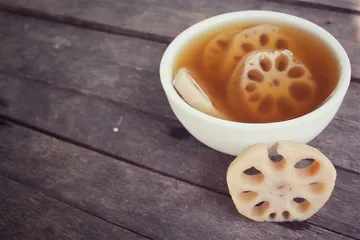A must-see for food! Four weight loss recipes will let you lose weight while eating
Today, Xiaobian will introduce four recipes for the majority of foodies. They are not only nutritious and delicious, but also have slimming effects. Foodies should not miss them.

Recipe 1: Marinate lotus root with vinegar Practice: Blanch the lotus root, add appropriate amount of sugar, salt, vinegar and sesame oil according to your taste, and mix well. Store the mixed lotus roots in a sealed bottle and take out some as side dishes every day.
Lotus root can remove intestinal dirt, prevent stool hardening, stimulate intestinal wall, and prevent constipation.
Recipe 2: Cooking seaweed beans in oil: Shred 300 grams of seaweed and blanch them with boiling water. After 100 grams of soybeans are cooked with water, cool the seaweed and soybeans to control the moisture, and then add salt, soy sauce, monosodium glutamate, chopped green onion to them. Stir well.
Kelp is rich in dietary fiber, which can promote intestinal peristalsis and increase bowel movements; unsaturated fatty acids in soybeans can promote bowel movements, and rich dietary fiber can absorb intestinal water and increase bowel movements.
Recipe 3: Mixed cabbage with vinegar Practice: Add 500 grams of cabbage with a little salt, put it in boiling water and blanch it. Allow the blanched vegetables to cool, squeeze out the water, cut them into pieces, then mix 1 cup vinegar, 1/2 cup stock, 2 spoonfuls of wine, and 1/2 spoonfuls of salt, and boil them to make soup. After the soup has cooled, pour it into a sealed bottle with cabbage and store it for one day.
Cabbage is rich in multiple vitamins and dietary fiber, which can enhance gastrointestinal peristalsis.
Recipe 4: Laver sesame rice Practice: Cut 100 grams of roasted seaweed into thin threads, and then roll 120 grams of black sesame seeds and 120 grams of white sesame seeds into pieces with a rolling pin. Mix these three ingredients together and store them in a bottle. Spoon or two spoonfuls for each meal and mix them with rice.
Laver is rich in nutrients such as carotene, calcium, potassium, and iron, which can promote gastrointestinal movement; sesame contains a large amount of amino acids, dietary fiber and minerals, which can promote bowel movement.